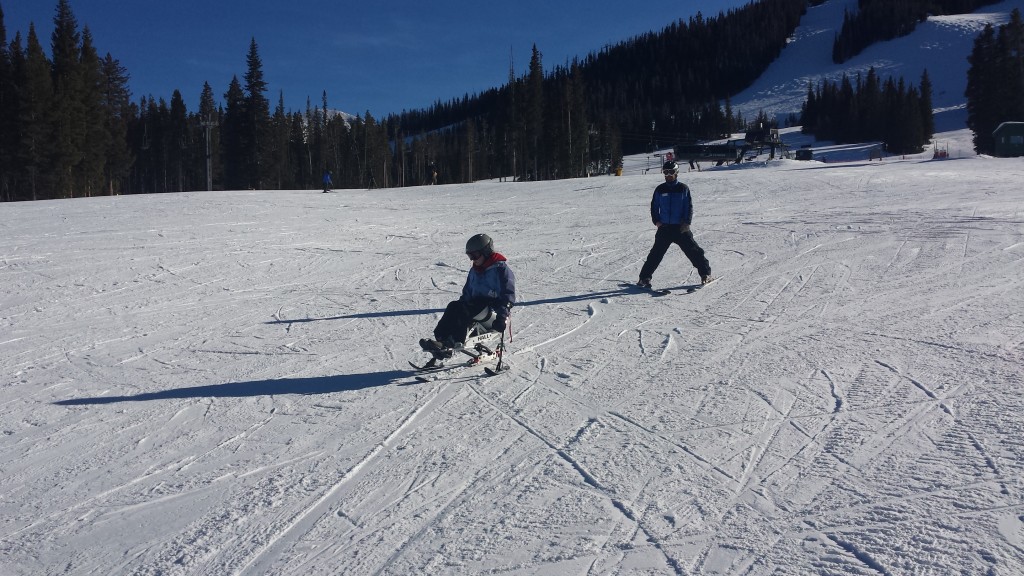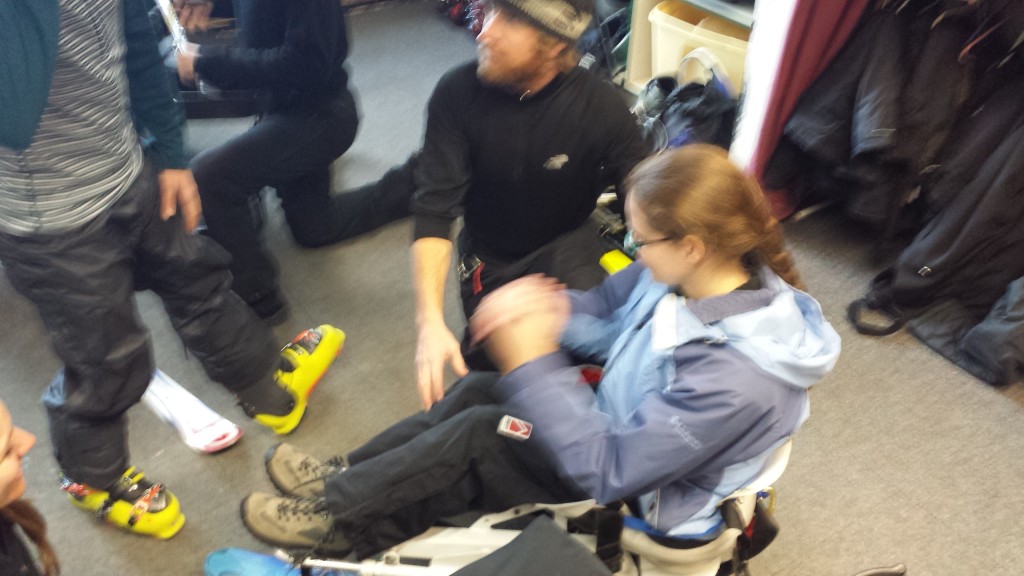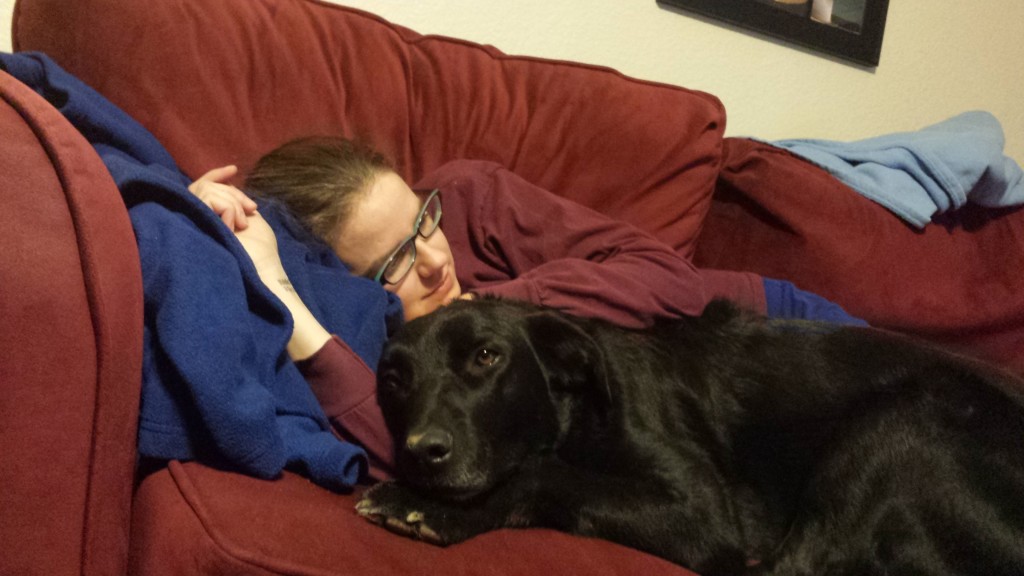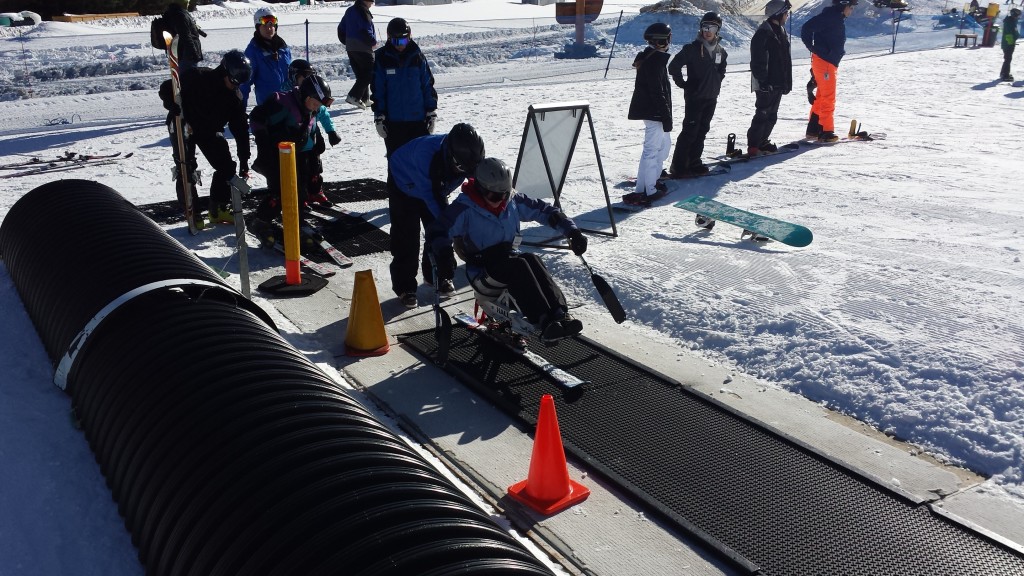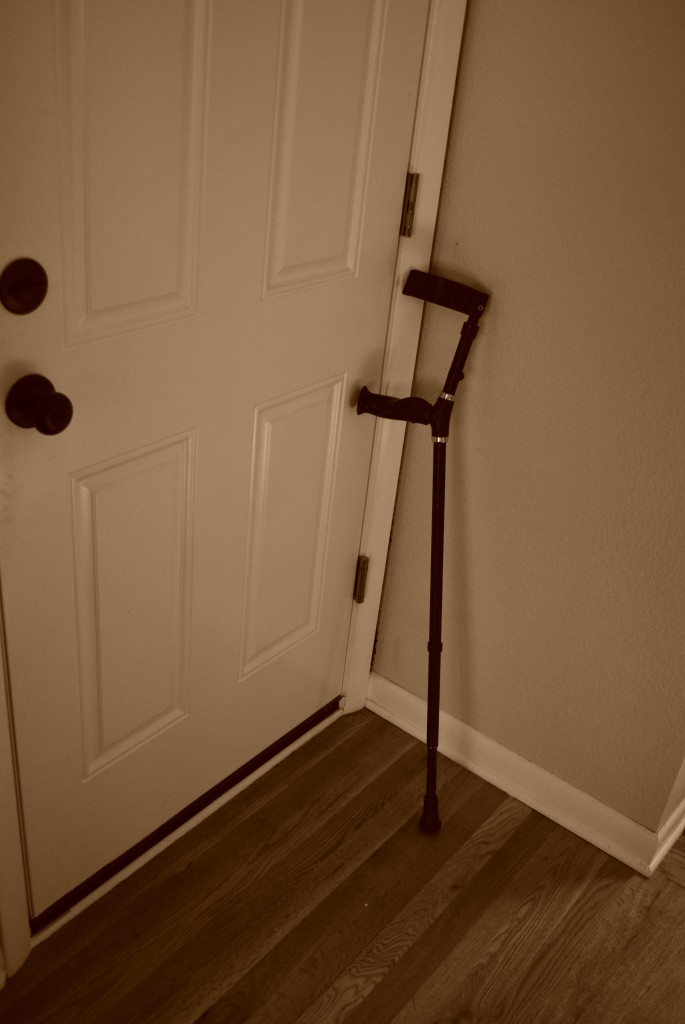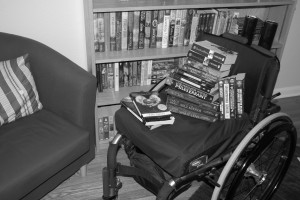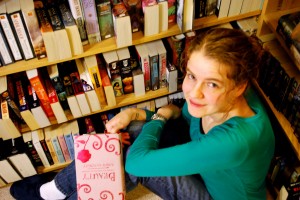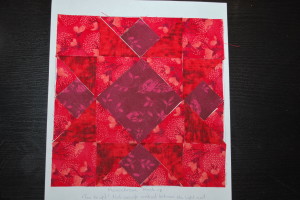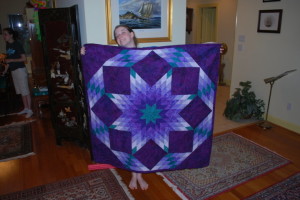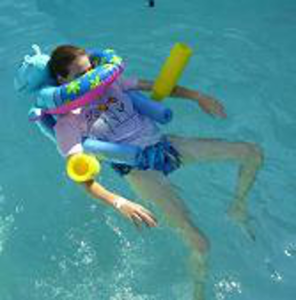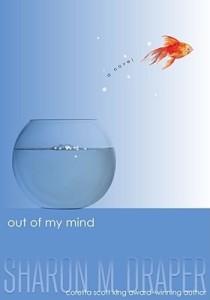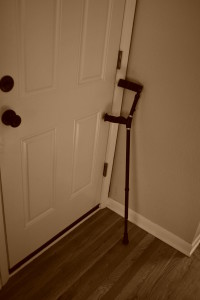So I decided to learn to ski. I grew up in New York and took skiing lessons when I was seven, and I went a couple times in high school and later. But it's been over seven years since my injury, and in the meantime, I hadn't really thought about it much. But over New Year's we had some friends in town and while we were driving them around Winter Park, I realized how much I missed it. And how silly it was that I hadn't tried out the alternative.
The National Sports Center for the Disabled is located in Winter Park and offers lessons and programs for all kinds of disabilities for all kinds of sports, not just skiing. Jim, Bethany, and David were my super awesome sidekicks for the day (or the pick-kendra-up-after-she-falls-down team). Let's just say it's a lot harder than it looks when you're staring up at the mountain all starry-eyed saying "I could be a paralympian!" First, they fitted me for a mono-ski, basically a chair on a ski as seen below in the very blurry picture.
Then we went out to the bunny slope where I learned how to glide, turn, and turn to a stop. Theoretically. I still think the best way to stop is to fall over but my back disagrees, so I guess more practice is in my future.
And can I just say kudos to David for running around in his ski boots up and down a hill all day?
After I could stop reliably, and you know, not ski off a cliff, I took the plunge and actually went up the mountain to find a nice easy green run. Getting the mono-ski up on a chair lift is interesting -- or terrifying, considering you can't see the lift underneath you, just your legs dangling over the abyss. Not sure the chair lift ride is my favorite part of skiing anymore. But you just sit there and the lift literally scoops you up. Pretty cool.
http://www.youtube.com/watch?v=EwVO3EhW2Ps&feature=youtu.be
Once at the top, I had a lot more fun on the green run than I did on the bunny slope. Mostly because I could go longer between falls. It's funny though, to watch the video. It did not feel that excruciatingly slow at the time. I could have sworn I was about to break the sound barrier.
http://www.youtube.com/watch?v=Bd-gkvEeB24&feature=youtu.be
By the end of the day I felt like it was all starting to click, though at that point the exhaustion had kicked in. I went home and got some therapy from the best source possible.
I want to thank my instructors for being so patient and flexible. These guys really know what they're doing. And I can't be the easiest person to teach with my do-it-wrong-million-ways-before-I-do-it-right kind of learning. I wasn't ready to race Picabo Street by the end of the day, but I will definitely be heading back to get it right before the end of winter.
Well you don't know what we can find,
Why don't you come with me, little girl,
On a magic carpet ride.

